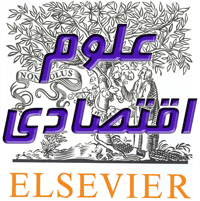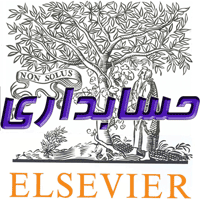دانلود مقاله isi بررسی کسب دانش و یادگیری و روند اولیه بین المللی سازی
دانلود رایگان مقاله الزویر در مورد بررسی کسب دانش و یادگیری و روند اولیه بین المللی سازی (کلیک کنید)
توضیحات :
وبسایت مکاله اقدام به ارائه پروژه ی ساینس دایرکت با فرمت pdf، از انتشارات الزویر برای رشته علوم اقتصادی، و با عنوان بررسی کسب دانش و یادگیری و و روند اولیه بین المللی سازی نموده است.
مشخصات این مقاله :
عنوان مقاله :
Knowledge acquisition, learning, and the initial pace of internationalization
ترجمه فارسی عنوان :
بررسی کسب دانش و یادگیری و و روند اولیه بین المللی سازی
سال انتشار : 2014
متعلق به مجله یا ژورنال : نقد و بررسی تجارت بین الملل – International Business Review
فرمت: PDF
تعداد صفحات: 13
شماره پروژه: 5084
کلمات کلیدی :
Export intensity,Internationalization,Knowledge,Learning,Strategic intent
شدت صادرات، بین المللی کردن، دانش، یادگیری،هدف راهبردی
چکیده :
Abstract
We analyze how knowledge, learning, and strategic intent shape export intensity during the period surrounding the initiation of export activities in small, independent firms. Our research is conducted on a sample of small firms started in Andalusia, a region characterized by a lower proportion of exporting firms. By examining the interplay among different forms of knowledge and learning we extend stage and international entrepreneurship models of the internationalization process. We find that in addition to the expected direct effects of learning, different forms of knowledge and learning interact to shape the pace of internationalization. Additionally, we find that pre-existing foreign knowledge influences export intensity in younger firms, but not in older ones; and, that the effects of vicarious learning and experiential learning on export intensity are conditioned by firms’ strategic intentions. We discuss the meaning of our results and suggest avenues for future study.
مقدمه این مقاله :
Introduction
Understanding when firms initiate and how quickly they develop international activities has long been a topic of interest to scholars. According to the stage (Uppsala) model of internationalization (Johanson & Vahlne, 1977; Johanson & Wiedersheim-Paul,1975), knowledge plays a key role as internationalization is seen as a learning process in which knowledge acquisition leads to increasing international commitment (Andersen, 1993; Johanson & Vahlne, 1977, 1990). In this model, lack of international experience and knowledge is an impediment to venturing across borders as firms are presumed to avoid uncertainty and to preferoperating in areas of greatest experience and knowledge. This model implies a late start and a gradual build-up as businesses acquire and accumulate experiential learning in a path-dependent process (Casillas & Moreno-Menendez, 2013; Eriksson, Johanson, & Sharma, 1997; Hutzschenreuter, Pedersen, & Volverda, 2007). Because of the theorized importance of path dependencies, where the firm starts and how quickly it starts have long-term repercussions for the firm. Over time, research has shown this model to be robust and useful.Nevertheless, scholars interested in explaining cases that defy the stage model (i.e., instances of early and rapid internationalizing)conceived alternative knowledge-related explanations for the initiation and pace of international expansion (Forsgren, 2002). The international entrepreneurship model assumes that international new ventures (INVs) are capable of starting early and expanding rapidly in international markets because of pre-existing knowledge, contacts in international markets, and rapid acquisition of knowledge (Coviello & Munro, 1995; Oviatt & McDougall,1994, 2005). This perspective allows knowledge drivers beyond experiential learning, the core of the stage model. Alternative learning mechanisms include such factors as congenital knowledge (i.e., knowledge acquired by founders before creating the venture), grafted knowledge (knowledge brought to the venture by managers hired post-startup), and vicarious learning from outside (e.g., Bloodgood, Sapienza, & Almeida, 1996; Fernhaber, McDougall, & Shepherd, 2009; Oviatt & McDougall, 1994). In short, there is evidence that very young firms’ learning is aided by founders’ congenital knowledge, by the knowledge and contacts of managers in the venture as well as outside network contacts, and by observing other firms.
توجه :
– این مقاله به صورت کامل و با فرمت پی دی اف آماده خرید اینترنتی و دانلود آنی میباشد.
توضیحات بیشتر در مورد پروژه :
در این مقاله خواهید خواند که تجزیه و تحلیل دانش ، یادگیری و شدت صادرات و شکل هدف راهبردی در طول دوره های شروع فعالیت های صادرات کوچک پرداخته می شود. نتایج بحث و راه را برای مطالعه آینده به شما نشان داده خواهد شد.
دانلود رایگان مقاله الزویر در مورد بررسی کسب دانش و یادگیری و روند اولیه بین المللی سازی (کلیک کنید)

